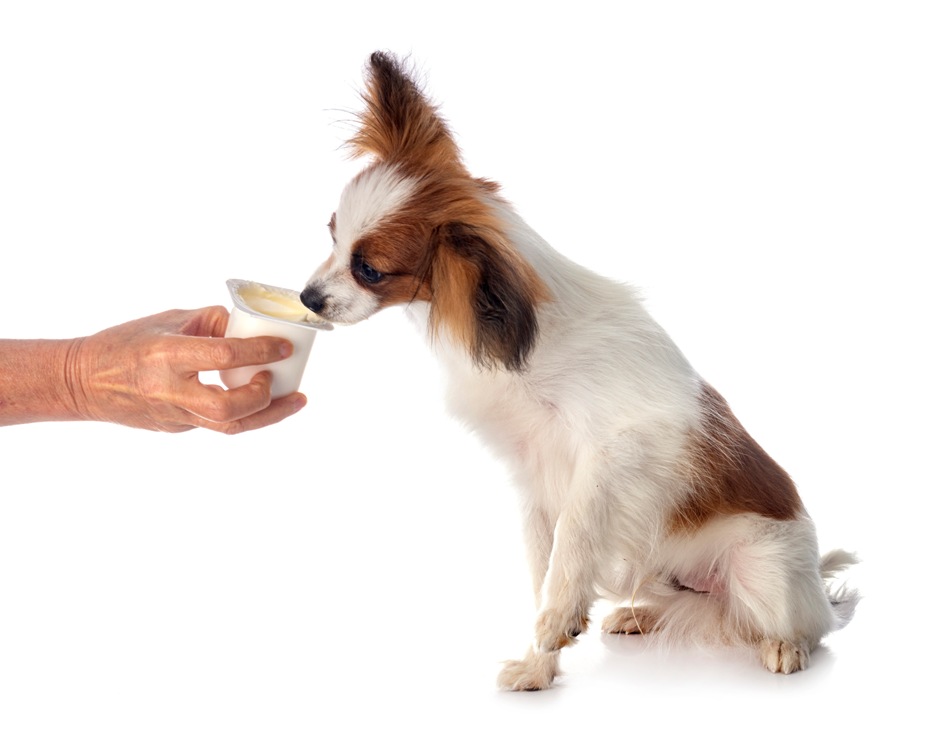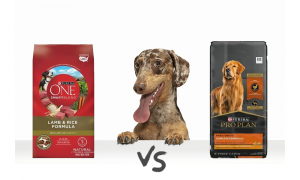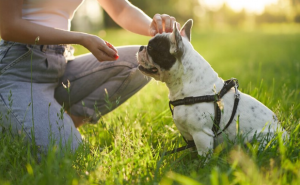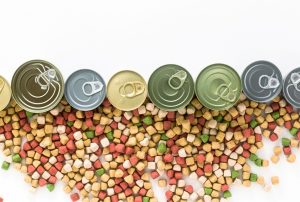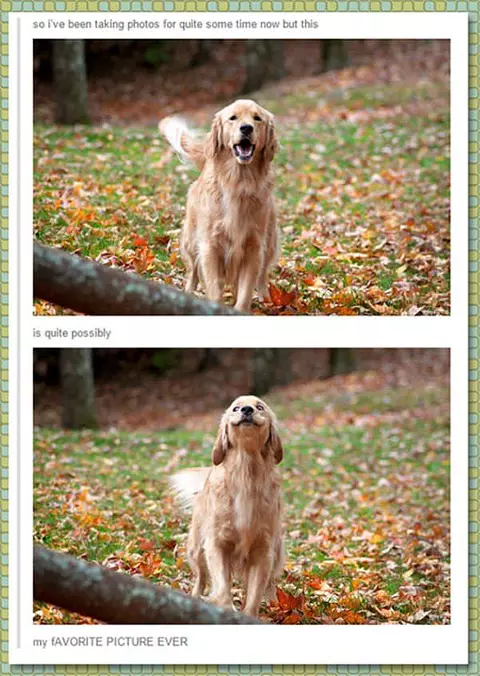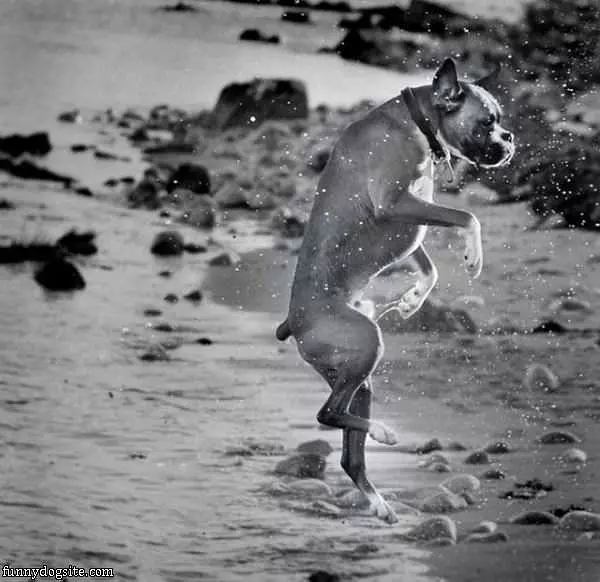Pet parents love to share all their favorite things with their pets. But before you go ahead and give them a taste of anything that hits your plate, it’s important to know what puppies can and cannot eat safely. After all, puppy bodies are different from human bodies, and they digest and process things a little differently. Just because something is good for us doesn’t mean it’s good for them, too. But if you’ve ever wondered if it’s okay to give your puppies a taste of dairy products like milk, ice cream, cheese, or yogurt, this article will give you the facts that you need to know.
What We'll Cover
Are Dairy And Milk Okay for Puppies to Consume?
Just as humans suffer from lactose intolerance, puppies do, as well. But the reality is, puppies are lactose intolerant at a much higher rate than humans are. This means that, while a small number of puppies can handle dairy just fine, most will experience digestive upset when they consume dairy products. This is because their bodies cannot break down lactose, which is the sugar in milk.
Lactose is made up of two molecules, and these molecules must be split after we consume them to be easily digested. To break up lactose, an enzyme called lactase must be present in our bodies. All mammals have lactase present in their bodies when they are born to digest their mother’s milk. But as they age and are weaned, their bodies don’t produce lactase anymore. Humans are rare in the fact that many people continue to produce lactase long after they are weaned.
Puppies, however, don’t produce as much lactase after they are weaned. Without lactase, puppies (and humans) simply can’t digest lactose, which will result in uncomfortable symptoms like gas, bloating, loose stools, or diarrhea after consuming dairy products. However, it’s also important to know that not all dairy products have a high lactose content. Hard cheeses, greek yogurt, cream, and butter are dairy products that are naturally lower in lactose. But this doesn’t mean they’re right for your puppy, either. Some of these products are high in fat, which can also have detrimental effects on your puppy’s health.
Can I Give My Puppy Cow’s Milk?
Chances are your puppy enjoys the taste of milk, and for good reason. It’s creamy and high in protein, and they may even try to seek it out or ask for a taste. Some owners think that because milk is generally regarded as a healthy drink for people, it must be good for their pup’s health, too. But before you pour them an entire bowlful, it’s a good idea to test your puppy’s tolerance. If you find that your puppy is lactose intolerant, a few sips of milk every now and then won’t harm them. But frequent consumption of larger quantities of milk may lead to problems down the road.
Frequent digestive problems like diarrhea can lead to weight loss, nutrient deficiencies, and a host of other problems. Also, your puppy will feel pretty miserable because their tummy is upset. A small taste of milk, ice cream, cheese, or yogurt — given as a treat every now and then — is recommended.
Should Puppies Eat Cheese?
Cheese is lower in lactose than milk is, but it’s high in fat. While cheese is okay for a treat, don’t feed your puppy high-fat dairy products often, as too much fat in your puppy’s diet can increase their chances of pancreatitis or becoming overweight. As a pet parent, you know your puppy’s health best. But always seek out advice from your veterinarian to learn more about what puppies can and cannot eat. After all, avoiding expensive vet bills is a priority for any owner.
Can My Puppy Have Yogurt?
While yogurt is super-healthy for humans because of its beneficial bacteria, no evidence shows that puppies benefit from this bacteria. The human gut is different from a puppy’s. So while yogurt is great for human digestion, the lactose in it can still do more harm than good for a puppy.
So We Shouldn’t Share Our Snacks?
When you’re enjoying a bowl of ice cream or a cold glass of milk and your pup gives you a hungry look, it’s hard to resist letting them take some. But what other treats can you give them instead of dairy? Lactose-free milk alternatives like rice milk, almond milk, soy milk, cashew milk, and others are generally safe for your puppy. Always opt for unsweetened, unflavored versions, as others can have dangerous ingredients like chocolate, xylitol (a sweetener), or macadamia nuts. These ingredients can make puppies severely ill. Also, it’s always a good idea to keep your puppy’s calorie consumption under control. You don’t want them to gain excess weight.
Each puppy is different and will be affected by dairy differently. Dairy can be a fun treat, but it’s important that, if you do decide to give your puppy a taste of dairy, you only give them a small amount and watch their reaction closely. If your puppy displays any symptoms of an upset stomach or diarrhea, it’s a smart idea to avoid all dairy in the future and seek out alternative treats.
Is Goat’s Milk Good For Puppies?
Many pet owners wonder if goat’s milk is a safe alternative for puppies, as some people use it as a dairy alternative. However, cow’s milk and goat’s milk have a similar lactose content. So it will likely produce similar symptoms in puppies who can’t digest lactose. Puppy’s milk has a lactose content of around 3%, while cow’s milk and goat’s milk both have a lactose content of around 5%. This means that even puppies who aren’t yet weaned often cannot digest goat’s milk, as their bodies only produce enough lactase to digest their mother’s milk.
Some products on the market are specifically aimed at replicating human treats like ice cream so that puppies can enjoy them safely and without any digestive issues. Check your favorite pet store or shop online to see what’s available and what your puppy may like. In addition, your puppy will probably prefer their favorite snacks over dairy products. We may love dairy, but our puppies likely prefer snacks like peanut butter, chicken, and packaged puppy treats. Keep a stock of your pup’s favorites on hand. Then you can enjoy a treat together, even when you aren’t sharing the exact same food. Your puppy’s tummy will thank you!
The responses below are not provided, commissioned, reviewed, approved, or otherwise endorsed by any financial entity or advertiser. It is not the advertiser’s responsibility to ensure all posts and/or questions are answered.
